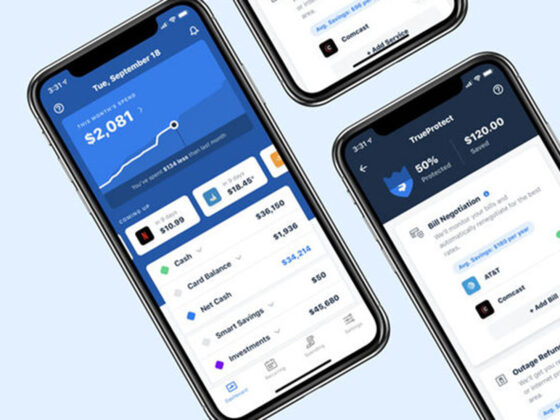The cryptocurrency market is largely driven by the day trading community, but with the introduction of new crypto exchanges that are open 24/7, will this affect prices?
The bitcoin vs stock market chart is a visual representation of the difference between the price of bitcoin and the stock market. It shows that there is not much correlation between the two, which leads to speculation that off-hours trading does not affect crypto prices.
[vc row] [vc column] [vc column text] Since the New York Stock Exchange (NYSE) originally opened in 1792, a lot has changed. Investors had to go to the market to buy or sell stocks back then. When laws enabled investors to trade via brokers, investing got a bit simpler.
After witnessing frantic images of brokers pushing, shoving, and shouting over one other to join or leave positions in movies like Trading Places, I recall being deterred from having anything to do with stock trading.
I recall being perplexed as to why anybody would want to cope with all of that. Nothing could possibly be worth all that effort, I reasoned.
Since stock exchanges have made significant efforts to streamline the process of buying and selling stocks over the years, I suppose I wasn’t the only one who considered the old stock trading scene too confusing.
Trading stocks is now as simple as downloading an app and inputting your financial information on your smartphone. Some traditions, such as most stock exchanges only doing business during conventional business hours in their area, have persisted.
With their 24-hour marketplaces, cryptocurrencies are poised to defy such conventions. They provide less regulated investment possibilities in assets at the leading edge of digital technology.
Cryptocurrencies are virtual currency that are protected on a network of computers using encryption. Bitcoin is the most widely used cryptocurrency, accounting for about 1.5 percent of all worldwide transactions.
Many of the most popular cryptocurrencies, such as Bitcoin (BTC), Ethereum (ETH), and Cardano (ADA), have seen their values rise over time. Cryptocurrencies have already made 12 billionaires and tens of thousands of millionaires.
Many parallels exist between investing and trading cryptocurrencies, but there are some key distinctions, such as the fact that cryptocurrency markets are open 24 hours a day, seven days a week, while stock exchanges are usually available during regular business hours and closed on weekends.
Because stock markets are regional, it has always been customary to trade them during business hours. Cryptocurrencies are global in nature and are not usually associated with any one location.
[tmm hover over pop up sign up type=”Stock Market” banner=1]tmm hover over pop up sign up type=”Stock Market” banner=1]tmm hover over_
How Does Cryptocurrency Trading After Hours Affect Prices?

Cryptocurrency values often fall during off-hours, but the reverse is almost as common.
Because cryptocurrency markets are worldwide and open 24/7, there are a variety of reasons why crypto values tend to fall during off-hours, particularly on weekends. Off-hours in the United States may be business hours in China, a country with a population of over 1.2 billion people and a voracious demand for cryptocurrency.
The only real off-hours decrease I’ve seen in cryptocurrency trading comes on weekends, when investors are less inclined to trade. The following are some of the reasons that have contributed to the price drop:
1. A decrease in trade volume
The majority of folks aren’t looking forward to the weekend so they can trade cryptos. Because there are fewer transactions during the weekend, market orders have a greater effect on pricing.
2. Market tampering
Pumps and dumps pricing may be manipulated more easily when trading volume is lower. A big sell order, for example, may induce panic sell orders and margin calls, enabling the dumper to re-enter the market at a cheaper price.
Because cryptocurrency exchanges are still mostly unregulated, manipulative conduct is more prevalent on them.
3. Trading on margin
You undoubtedly know how much I despise them if you’ve read any of my previous bitcoin posts. Avoid margin trading unless you’ve been trading cryptos for at least a few years. Better still, avoid margin trading at this time.
Margin trading is when you borrow money from an exchange and use it to buy cryptos.
When prices fall below a certain level, the exchange protects itself by imposing restrictions that require you to sell your collateral to repay the loan.
Consider the following scenario: you have $100 to invest. When you trade on margin, the exchange may provide you with a $500 loan to trade with. Some exchanges may loan you up to 25 times the value of your collateral. Because you invested more, your earnings will grow as prices rise.
If prices fall, you may lose all $100 since the exchange would terminate your trade if your losses are almost equal to your collateral.
That’s why I’m not a fan of margin trading. A drop in price may wipe out your whole investment. You may just hold and refuse to sell until prices rise again in normal trade.
4. Availability of funds
To assist their investments, cryptocurrency traders often utilize the services of organizations like as banks. To make a purchase, you may have to transfer money to a bitcoin exchange. Traders have less capital to buy bitcoin on weekends since most financial institutions are closed.
It is reciprocal.
When banks are closed, sellers may be compelled to sell their bitcoin holdings for cheaper prices only to gain access to fiat money. For example, I’ve used my Bitpay card to cash out Bitcoin on the weekends when prices were low.
Using a site like Coinbase to convert my bitcoin to currency and make an ACH transfer to my bank account would have been an option. That would imply I’d have to wait until Monday afternoon at the absolute least to access my money. [/vc column text] [vc raw html] JTIwJTNDYSUyMGhyZWYlM0QlMjJodHRwcyUzQSUyRiUyRmNvaW5iYXNlLWNvbnN1bWVyLnNqdi5pbyUyRmMlMkYxMTQwMDU2JTJGODMwMDc1JTJGOTI1MSUzRnN1YklkMSUzREJsb2clMjZwYXJ0bmVycHJvcGVydHlpZCUzRDEwNjQwMTQlMjIlMjB0YXJnZXQlM0QlMjJfdG9wJTIyJTIwaWQlM0QlMjI4MzAwNzUlMjIlM0UlM0NpbWclMjBzcmMlM0QlMjIlMkYlMkZhLmltcGFjdHJhZGl1cy1nby5jb20lMkZkaXNwbGF5LWFkJTJGOTI1MS04MzAwNzUlMjIlMjBib3JkZXIlM0QlMjIwJTIyJTIwYWx0JTNEJTIyJTIyJTIwd2lkdGglM0QlMjI3Mj glMjIlMjBoZWlnaHQlM0QlMjI5MCUyMiUyRiUzRSUzQyUyRmElM0UlMjA=[/vc raw html] [vc column text]
The Benefits and Drawbacks of Crypto Trading Outside of Business Hours

Understanding how bitcoin values fluctuate during off-peak hours may help you diversify your holdings. The following are some of the advantages of trading after hours:
- Low liquidity: During the weekend, trading volume drops, which may be beneficial or detrimental depending on your plans. Because of the lack of liquidity, sellers may be ready to sell their assets for a cheaper price in order to convert them to something else, such as fiat money. It also implies that prospective purchasers may be prepared to pay more than the cryptocurrency is worth since their purchasing choices are restricted during off-hours.
- Faster responses to breaking news: I sold most of my Dogecoin when Elon Musk confessed on Saturday Night Live that it was a ruse. Prices had begun to fall even before the remark was made, so I knew a major collapse was on the way. If bitcoin exchanges were closed during off-hours, I wouldn’t have been able to sell my holdings.
- This is more convenient since it doesn’t need any explanation. It’s simpler to make trades when you can join and exit positions anytime you choose.
Off-hours cryptocurrency trading, on the other hand, has certain disadvantages, such as:
- Increased risk: Due to the worldwide nature of cryptocurrency markets, anything may happen while you’re sleeping.
- Increased volatility: Because of the decreased transaction volume, after-hours crypto trading increases volatility. This may put you in a terrible position, particularly if you’re trading on margin.
[tmm hover over pop up sign up type=”Stock Market” banner=2] tmm hover over pop up sign up type=”Stock Market” banner=2] tmm hover_
Trading Cryptocurrencies and Stocks Have Some Parallels

When it comes to exchanging assets, both cryptocurrency and stock markets provide a comparable user experience. Whether you’re investing in cryptocurrencies or conventional equities, the majority of trading nowadays is done via smartphone apps or online exchanges.
Stock markets have traditionally been more difficult to enter owing to restrictions such as minimum investment requirements. However, this is rapidly changing as market operators look for methods to make investing more accessible.
Millions of investors are being kept out of stock markets owing to outmoded regulations and restrictions, as shown by the massive amount of money that has flowed into cryptocurrencies over the last decade.
Cash App is now one of my favorite stock trading platforms. I first purchased the software to transfer money to friends and family without incurring any costs, and I was pleasantly pleased when it added a stock function that enables you to trade stocks with your smartphone with no minimum investment.
It’s the simplest method to trade equities I’ve come across so far.
When it comes to trading, there are a few parallels between stocks and cryptocurrencies:
- Users of cryptocurrency and stock exchanges may expect a comparable user experience and order types, such as stop, limit, and market orders.
- The majority of trading takes place on digital and online platforms such as smartphone apps and online exchanges.
- The same principles apply to reading bitcoin and stock charts.
While stock trading and cryptocurrency trading have certain parallels, there are significant distinctions between the two sectors. These are some of them:
- Cryptocurrency marketplaces are subject to little or no regulation. That is beginning to change as governments across the globe become more aware of the growth of virtual currencies. Despite this, several cryptocurrency exchanges allow you to create an account without submitting identity papers. The unbanked may now participate in bitcoin markets. Even the most basic stock trading systems, such as Cash App, need you to provide identification and financial details.
- Most equities are traded against fiat currencies like the dollar, while cryptocurrencies are often traded against one another. Because it includes the two most prominent cryptocurrencies, BTC/ETH is the most popular trading pair. If Bitcoin and Ethereum were stocks, you’d have to convert your Bitcoin to fiat money before buying Ethereum with it, which would result in higher trading costs. You can’t just sell your Tesla shares and buy AMC stock.
- Market hours: The bulk of stock transactions in local regions are limited to business hours. For example, stock markets in the United States are open from 9:30 a.m. to 4:30 p.m. EST. Cryptocurrency markets, on the other hand, are open 24 hours a day, seven days a week, making it simpler to join and liquidate positions or leave the market. Because bitcoin and stock values are both volatile, this is a significant distinction. Stockholders, for example, may be compelled to hold during a collapse if markets are closed, while cryptocurrency holders may always leave. To help solve this issue, aftermarket stock trading is becoming more popular.
[tmm hover over pop up sign up type=”Stock Market” banner=3] tmm hover over pop up sign up type=”Stock Market” banner=3]
Taking Advantage of Price Swings on Weekends

While it is true that bitcoin values tend to fall during the weekend, this is not a hard and fast rule. Bitcoin prices were higher at market open Monday than at market closure the previous Friday nearly half of the time, according to pricing data. If you decide to trade on the weekends, keep that in mind.
What we do know is that after-hours trading usually results in some of the largest price fluctuations we witness during the week. That’s the opportunity you want to seize.
Weekends are often a good time to initiate positions since prices are typically cheaper during this time. From Friday night’s close to Sunday morning’s open, trading volume is usually at its lowest. When bitcoin trading resumes in Asian markets on Sunday afternoon, the weekend is officially over.
The key to profiting from weekend price fluctuations is to understand how the current sentiment around the cryptocurrency you want to buy in will be influenced by the reduced volume and liquidity that usually happens on weekends.
Lower trading volume may lead to higher prices as eager buyers buy up the few available sell orders if investors are generally positive about the coin.
Negative news, such as Elon Musk’s loud mouth on Saturday Night Live, on the other hand, may bring prices tumbling down. Always invest only what you can afford to lose. [/vc column text] [vc column text]
Continue reading:
[/vc column text] [/vc column] [/vc row]
The disadvantages of bitcoin trading is a question that has been asked by many. There are a few disadvantages to off-hours trading, but the benefits outweigh the costs for most people.
Related Tags
- cryptocurrency vs stock market which is better
- day trading crypto vs stocks
- crypto trading vs stock trading reddit
- is cryptocurrency a stock
- day trading stocks vs crypto reddit

 [/vc column text] [/vc column] [/vc row]
[/vc column text] [/vc column] [/vc row]
